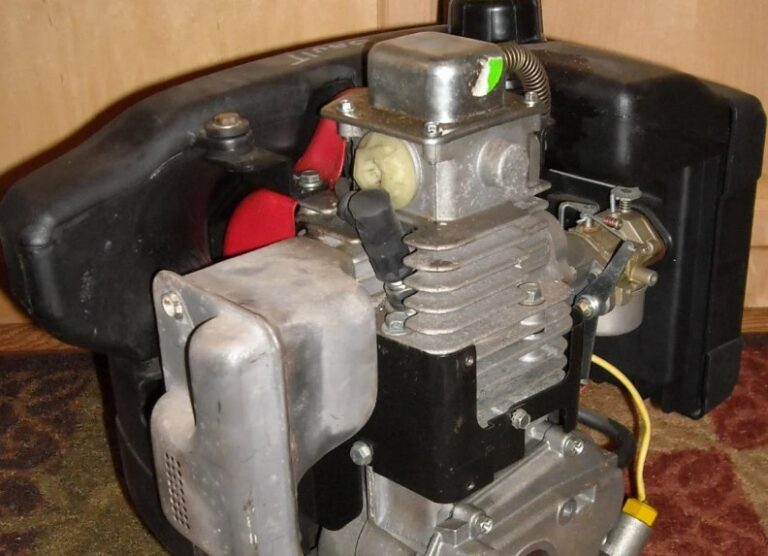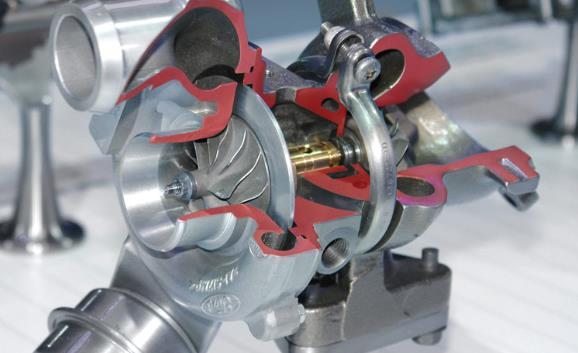Does A Carbureted Engine Need A Fuel Return Line? Answered
In the realm of automotive engines, the debate about Does A Carbureted Engine Need A Fuel Return Line? often emerges among enthusiasts. Carbureted engines, known for their simplicity and historical significance, function distinctly compared to modern fuel-injected systems.
The fuel return line, a component not universally present in all carbureted engines, plays a specific role that merits exploration. This article aims to dissect the necessity of a fuel return line in carbureted engines, examining its function, benefits, and potential drawbacks.
Key Takeaways
- Functionality of Carbureted Engines: Understanding the basic mechanism.
- Role of Fuel Return Lines: Their purpose and impact on engine performance.
- Comparisons with Modern Fuel Systems: How carbureted engines differ from fuel-injected systems.
- Maintenance and Troubleshooting: Key aspects for optimal performance.
Does A Carbureted Engine Need A Fuel Return Line?
No, a carbureted engine does not strictly need a fuel return line to operate, but having one can provide benefits such as better fuel pressure regulation, reduced risk of flooding, and improved overall engine performance.
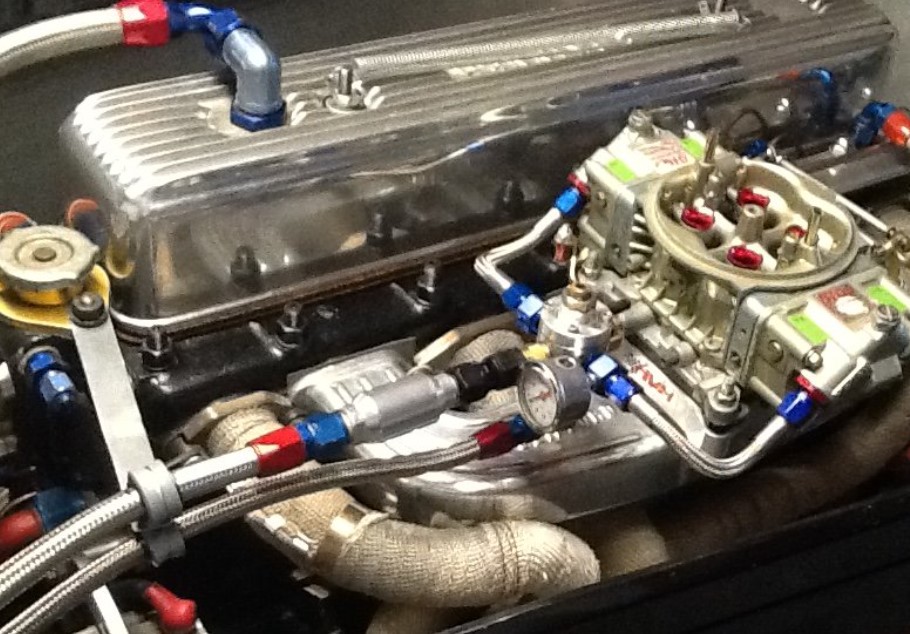
The Carbureted Engine and Its Operation
Understanding the Basics
Carbureted engines operate on a straightforward principle: mixing air and fuel in the right proportion for combustion. The carburetor, the heart of this system, is responsible for this air-fuel mixture. Unlike fuel-injected engines, carburetors manually adjust the mixture, relying heavily on mechanical parts.
Mechanism of Fuel Delivery
In carbureted engines, fuel is drawn into the carburetor by vacuum pressure, created by the engine’s intake stroke. This process, though efficient, can be influenced by various factors like engine speed and load, affecting the fuel’s flow and mixture.
The Role of a Fuel Return Line
A fuel return line helps regulate fuel pressure within the system. By allowing excess fuel to flow back to the tank, it prevents issues like flooding, vapor lock, and fuel starvation.
Comparing Carbureted and Fuel-Injected Systems
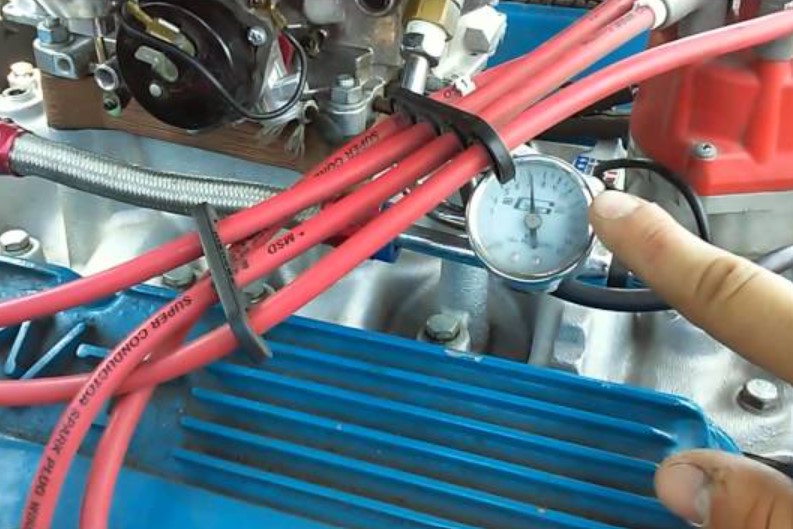
Differences in Fuel Management
The key distinction between carbureted and fuel-injected systems lies in fuel delivery and control. Fuel-injected engines use computer-controlled systems for precise fuel management, something inherently lacking in carbureted engines.
Impact on Performance and Efficiency
Fuel-injected engines typically offer better fuel efficiency and performance, owing to their ability to adapt to changing engine conditions. Carbureted engines, while simpler, cannot match this level of adaptability.
Maintenance and Troubleshooting Carbureted Engines
Regular Check-Ups
Maintaining a carbureted engine involves routine checks and adjustments to ensure optimal air-fuel mixture and engine performance.
Common Issues and Solutions
Issues like clogged filters, worn-out parts, and improper adjustments can affect the performance of carbureted engines. Regular maintenance and timely repairs are crucial for smooth operation.
How Important Is A Fuel Return Line?
The importance of a fuel return line in a vehicle’s fuel system cannot be overstated, particularly in certain engine configurations. A fuel return line is crucial in maintaining consistent fuel pressure and preventing a range of issues that can arise from pressure imbalances.
In carbureted systems, although not always necessary, a fuel return line can greatly improve engine performance and reliability. It helps in regulating fuel pressure, avoiding the risks of flooding and vapor lock, which are common in carbureted engines. Moreover, it can contribute to more efficient fuel consumption and smoother engine operation.
What Happens If You Block Off A Fuel Return Line?
Blocking off a fuel return line can lead to various problems in an engine’s performance. The most immediate effect is an increase in fuel pressure.
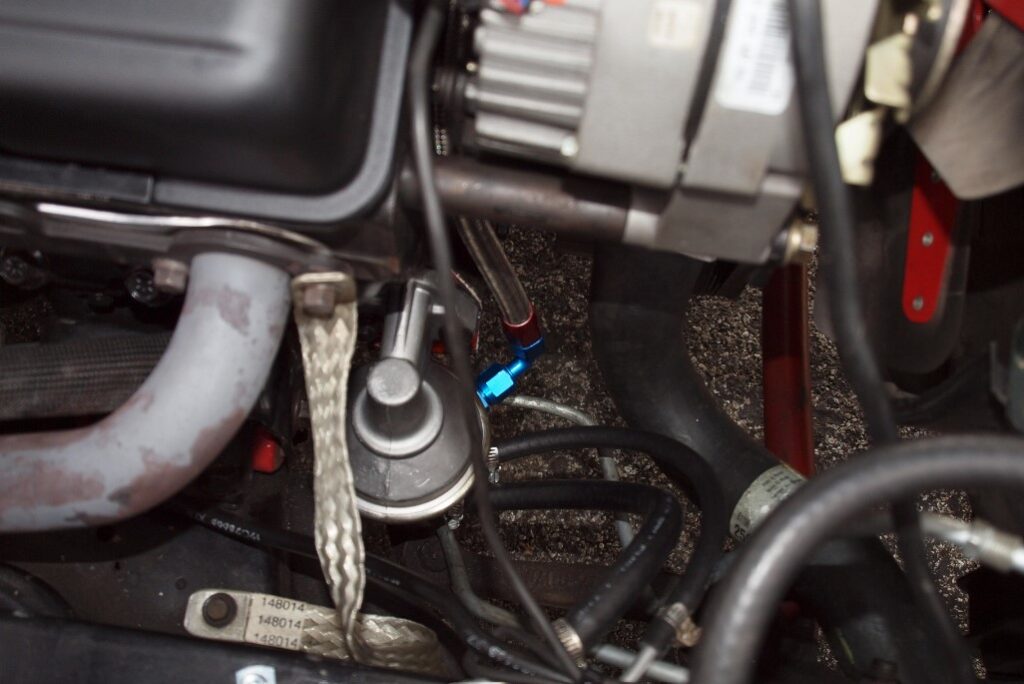
This heightened pressure can overwhelm the carburetor’s capacity to regulate fuel flow, potentially leading to an overly rich fuel mixture. In turn, this can cause engine flooding, where too much fuel drowns out the spark plugs, preventing the engine from starting.
Additionally, in systems designed with a return line, blocking it can lead to increased fuel temperatures, resulting in vapor lock. This situation occurs when fuel vaporizes in the fuel line, preventing the proper flow of liquid fuel to the engine.
What Is A Fuel System Without A Return Line?
A fuel system without a return line, often referred to as a ‘dead-head’ system, is one where the fuel is delivered directly to the carburetor or fuel injectors without any excess being returned to the tank.
This type of system typically relies on a pressure regulator to maintain the correct fuel pressure. While simpler and cheaper to install, dead-head systems can have disadvantages compared to return line systems.
They can be more susceptible to heat soak and vapor lock, as the fuel is not constantly circulated and cooled. Furthermore, regulating fuel pressure can be more challenging, especially in high-performance or modified engines.
Does An Electric Fuel Pump For Carburetor Need A Return Line?
The necessity of a return line when using an electric fuel pump for a carburetor depends on several factors, including the design of the fuel pump and the engine’s requirements. Generally, electric fuel pumps can generate higher pressures than mechanical pumps.
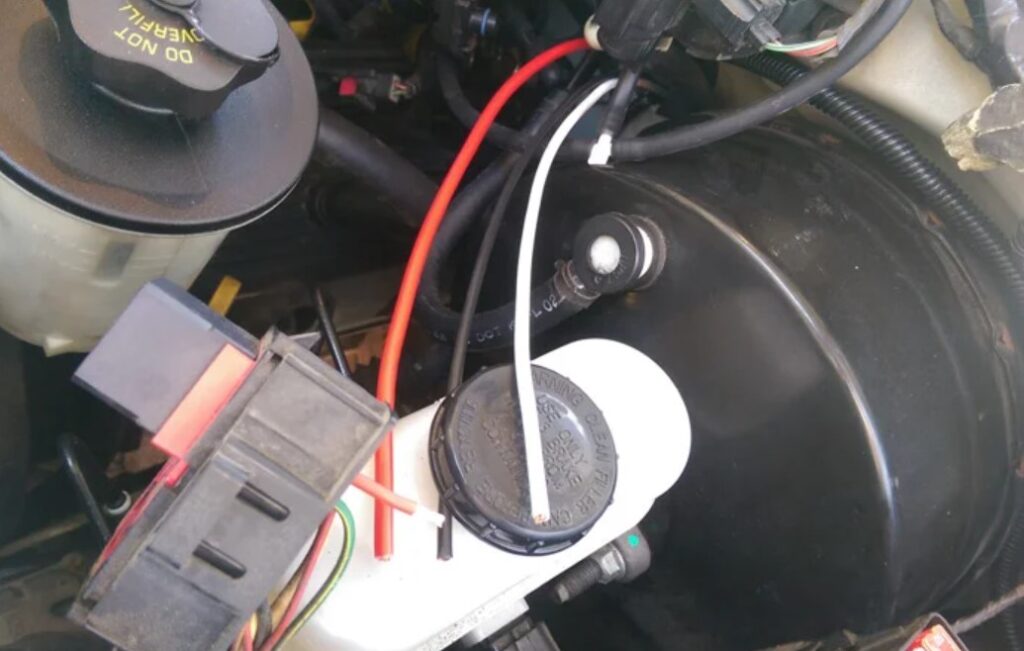
In such cases, a return line can be essential to relieve excess pressure and prevent issues like flooding and erratic fuel delivery. However, some electric fuel pumps are designed to work efficiently without a return line by integrating internal pressure regulation mechanisms.
It’s important to consult the specifications of the specific fuel pump and the engine’s requirements to determine the necessity of a return line in each case.
Conclusion
In summary, while a carbureted engine can function without a fuel return line, incorporating one can enhance its performance and reliability. Understanding the mechanics and maintenance of these engines is key to appreciating their role in automotive history. So, Does a Carbureted Engine Need A Fuel Return Line? It’s not essential, but certainly beneficial for optimal engine performance and longevity.
Frequently Asked Questions
How Does a Carbureted Engine Differ from a Fuel-Injected Engine?
A carbureted engine uses a mechanical means to mix air and fuel, whereas a fuel-injected engine uses electronic controls to inject fuel directly into the combustion chamber or intake tract. Fuel-injected engines are generally more efficient, with better fuel management and emissions control.
What Are the Signs of Carburetor Problems?
Common signs of carburetor problems include engine stalling, difficulty starting, inconsistent engine performance, and poor fuel efficiency. Black smoke from the exhaust can also indicate a rich fuel mixture, a common carburetor issue.
How Does a Fuel Return Line Affect Engine Performance?
A fuel return line can positively affect engine performance by maintaining consistent fuel pressure and delivery. This ensures that the right amount of fuel is always available for combustion, improving efficiency and preventing issues like engine stalling.
What is Vapor Lock and How is it Prevented?
Vapor lock occurs when fuel vaporizes in the fuel line, usually due to high temperatures, preventing liquid fuel from reaching the carburetor. It can be prevented by ensuring proper fuel line insulation, maintaining a cool engine environment, and in some cases, using a fuel return line.
How Do You Maintain a Carbureted Engine?
Maintenance of a carbureted engine includes regular cleaning of the carburetor, replacing worn-out parts, and ensuring the air-fuel mixture is correctly adjusted. Regular checks of the fuel line, filter, and connections are also important for optimal performance.

Welcome to the exhilarating world of Matt Rex, a professional car racer turned renowned vehicle enthusiast. Immerse yourself in his captivating blog as he shares heart-pounding adventures, expert reviews, and valuable insights on cars, trucks, jets, and more. Fuel your passion for speed and discover the beauty of vehicles through Matt’s engaging stories and meticulous expertise. Join the ever-growing community of enthusiasts who find inspiration and expert advice in Matt Rex’s blog—a digital hub where the thrill of speed meets the pursuit of knowledge.

![Is Jet Skiing Safe For Non-Swimmers? [Answered]](https://www.turbochaos.com/wp-content/uploads/2023/08/Is-Jet-Skiing-Safe-For-Non-Swimmers-768x512.jpg)
![Is Caterpillar Making Truck Engines Again? [Answered]](https://www.turbochaos.com/wp-content/uploads/2023/12/Is-Caterpillar-Making-Truck-Engines-Again-768x497.jpg)

